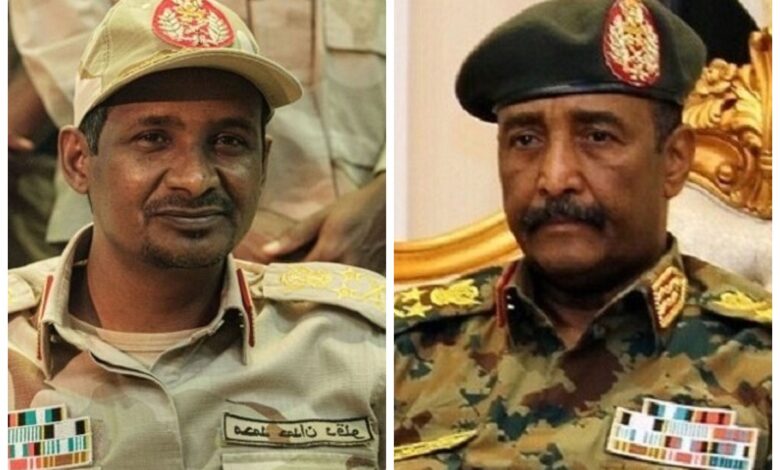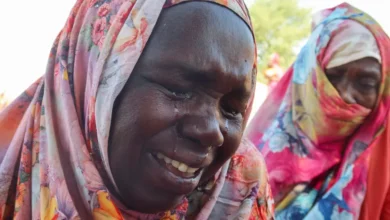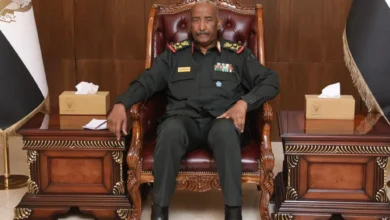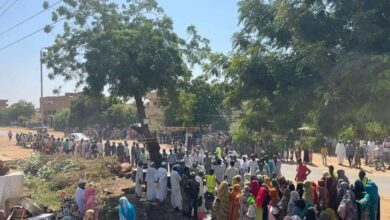What behind the dispute between Al-Burhan and Hamidti

The dispute between the head of the Sovereignty Council, Abdel Fattah Al-Burhan, and the commander of the Rapid Support Forces, Muhammad Hamdan Daglo, “Hemedti”, is heading towards calming down, after the intervention of mediators, after Al-Burhan adopted measures to reduce the influence of his deputy, “Hemedti”.
People close to Hamidti said that some of his advisors advised him to calm down and not escalate the dispute with Al-Burhan, because the military establishment stands behind him and the country’s conditions do not tolerate a conflict that could lead to security chaos, and this contributed to a balanced speech during which he pledged to integrate his forces into the army and withdraw from the political process as the text of the framework agreement.
The differences between the Army Commander and the Rapid Support Commander increased after a series of exchanges over the past two weeks, this time touching on the most important issues, especially the ongoing political process in the country and the integration of Rapid Support elements into the armed forces.
Disagreements intensified between the military leaders of the army and the Rapid Support Forces in some areas of Darfur, after directives to deploy the Sudanese-Chadian joint forces, hours after Al-Burhan’s visit to N’Djamena this month.
Sources confirmed that the Rapid Support Forces, which were deployed on the borders, especially in the state of West Darfur, had received instructions to withdraw and remove their areas of focus.
Hamidti spoke in press statements last January about the failure of an attempt to change the regime in the Central African Republic, accusing parties of arming and providing uniforms for a military force on the borders of the state.
Activists in Darfur accuse the Rapid Support Forces of running mining activities in the border strip with Chad and Central Africa with the help of the Russian Wagner forces.
In Central Africa, special follow-up indicates an alliance that brings together one of the most prominent leaders of the Afro-Mediterranean opposition, Noureddine Adam, the former Minister of Public Security, and the Rapid Support Forces. However, other information indicates the existence of indirect contacts between army leaders who were part of a group of facilitators of negotiations between the parties in Central Africa.
A recent report by the British “Middle East Eye” website stated that the de facto deputy leader of Sudan, General Mohamed Hamdan Dagalo, helped stop a coup to overthrow the government of the Central African Republic, which was planned across the border in Sudan. But the opposition forces known as (the Alliance of Patriots for Change), which includes the former Seleka group led by the former President of the Central African Republic, Francois Bozize, denied Hamidati’s allegations.
The RSF was accused of supporting Wagner against them within the borders of the Central African Republic.
There are talks about the annoyance of the member of the Sovereign Council, Shams al-Din Kabbashi, about the expansion of the Rapid Support Forces and the process of their deployment, and the need to put an end to that.
The discrepancy between the two parties in the position regarding the arrangements of the framework agreement constituted a distinguishing mark between them and a significant difference in the discourse and approach in which the political crisis is managed by them, despite their belonging to one institution, which is the military institution.





